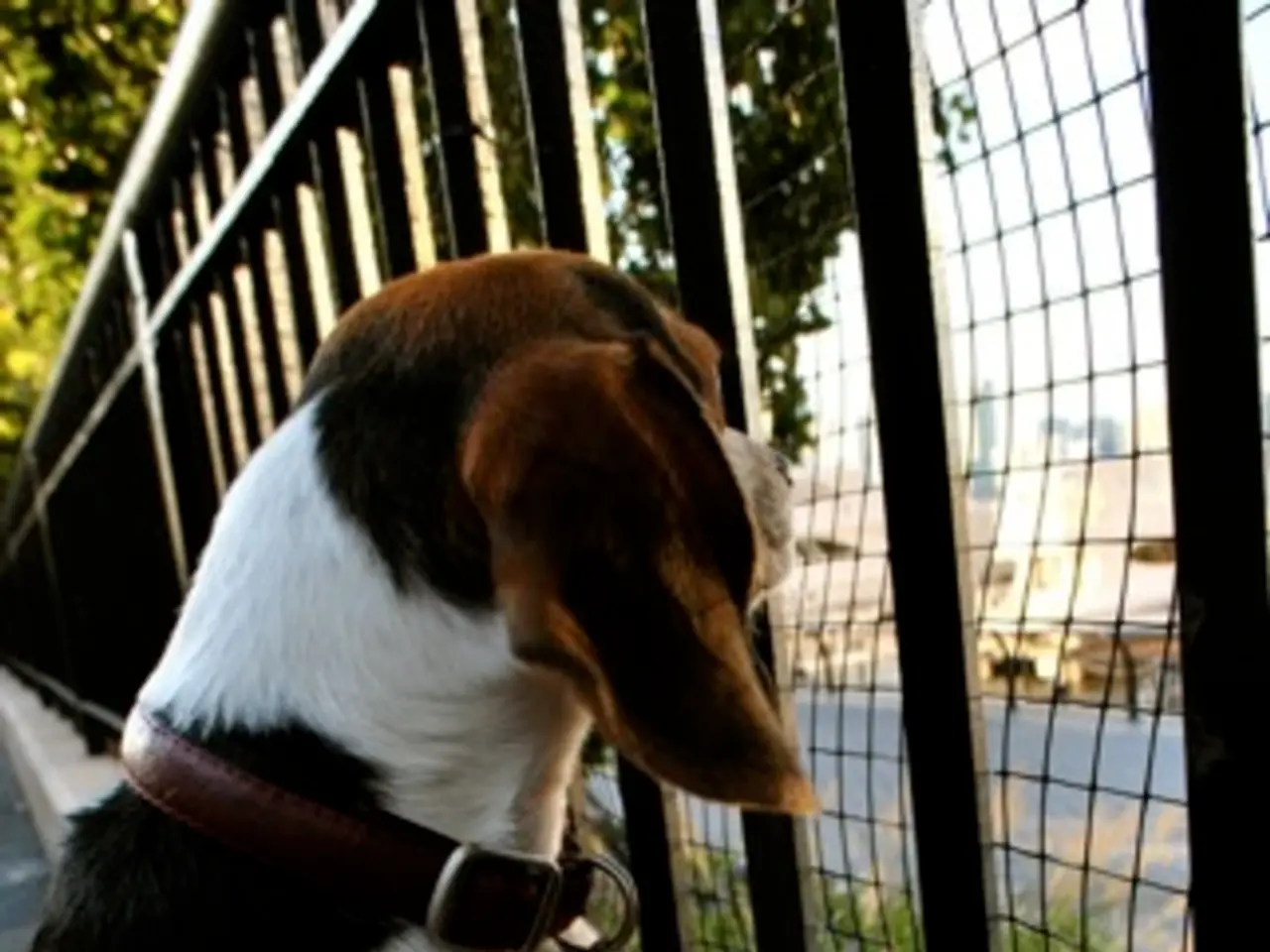"Order for Capture of Stray Dogs in Delhi NCR: Reasoning Behind Human and Canine Interests"
In a significant move to address the stray dog menace in the Delhi National Capital Region (NCR), the Supreme Court of India has modified its earlier order dated August 11, 2025. The court is advocating a humane, scientific, and balanced approach to manage the issue.
The revised order directs that stray dogs, which are not rabid or aggressive, should be sterilized, immunized, dewormed, and then released back into their original localities, in line with Rule 11(9) of the Animal Birth Control (ABC) Rules. Dogs infected with rabies or displaying aggressive behavior will be taken to shelters and not released back.
Immediate actions include the start of picking up stray dogs for sterilization, vaccination, and deworming without delay, and the simultaneous establishment of adequate shelters and pounds across Delhi NCR for cases where release is inappropriate. Any obstruction in the implementation of these steps will be considered contempt of court and will invite strict action.
Regarding feeding and public interaction, the court has prohibited the feeding of stray dogs on public streets. Instead, the Municipal Corporation of Delhi has been ordered to create dedicated, clearly marked feeding zones where feeding is permitted, considering the stray dog population distribution in each ward. Helplines must be created for reporting any violations related to feeding and stray dog management.
Shelters/pounds for stray dogs must be sufficiently staffed to carry out sterilization, deworming, immunization, and care for dogs. Funding of ₹25,000 has been allocated to NGOs involved in the care and management of stray dogs, to be used for setting up facilities.
The Supreme Court's orders aim to prioritize a humane approach, focusing on sterilization and vaccination with release to original areas unless health or behavior conditions warrant sheltering. Public feeding must be restricted to designated zones to manage interaction safely.
The court has observed that the menace of dog bites infringes on the fundamental rights of citizens under Articles 19(1)(d) and 21 of the Constitution. No mistreatment or cruelty is permitted in the shelters, and overcrowding must be avoided.
Any obstruction by individuals or organizations in the implementation of the Supreme Court's orders will be treated as contempt of court. The Delhi High Court matter on dog shelter construction (Parthima Devi v. MCD) will be transferred to the Supreme Court.
The Supreme Court has noted that visually impaired persons, young children, elderly persons, and people from humble backgrounds are most vulnerable to stray dog bites. A helpline number will be set up within 1 week for reporting dog bites, and dogs involved must be caught within 4 hours of complaint.
The order was issued in a suo motu case on the stray dog menace in Delhi NCR. The creation of a dedicated force for the immediate removal of stray dogs, including sterilization, immunization, and de-worming of captured dogs, remains in effect. The Supreme Court has directed the removal of stray dogs from all localities in Delhi NCR.
The court has urged citizens to adopt stray dogs but has also criticized "virtue signaling" by animal lovers. The Delhi government is required to publish details of rabies vaccine availability, stock, and monthly treatment numbers. Adoption of dogs from shelters may be permitted under the Animal Welfare Board's 2022 protocol, but re-release to streets is prohibited.
Shelters/pounds for stray dogs must be established across NCR within 8 weeks, with an initial capacity of at least 5,000 dogs. The Supreme Court has passed directions for the immediate removal of strays, including the creation of a dedicated force, sterilization, immunization, and de-worming of captured dogs, and a prohibition on re-releasing captured dogs to the streets.
- In light of the increasing emphasis on workplace-wellness and health-and-wellness, a policy-and-legislation push could be initiated in the politics of India, focusing on the inclusion of therapeutic fitness-and-exercise programs for mental-health improvement and skin-care awareness in Medicare coverage.
- The Supreme Court's decision on humane stray dog management in Delhi NCR demonstrates the potential for similar balanced, scientific approaches in other health-related policy issues, such as promoting general-news topics like vaccination campaigns or addressing emerging skin-care concerns linked to air pollution.
- While the case of stray dogs in Delhi NCR garnered attention from policy-and-legislation bodies like the Supreme Court, issues like mental-health and mental-healthcare services similarly require attention and intervention from governmental and non-governmental entities to encourage a comprehensive approach to overall well-being.
- As the Supreme Court attempts to manage the stray dog menace using a scientific, balanced approach in line with Rule 11(9) of the Animal Birth Control (ABC) Rules, parallels may be drawn between this and the development of regulations and guidelines for therapies-and-treatments in the realm of mental-healthcare.
- With the strict actions issued by the Supreme Court against any obstruction in managing stray dogs, it raises questions on the extent of enforcement and the promptness in handling legislation—questions that are equally applicable to policies addressing mental-health issues and access to suitably funded therapies-and-treatments.




